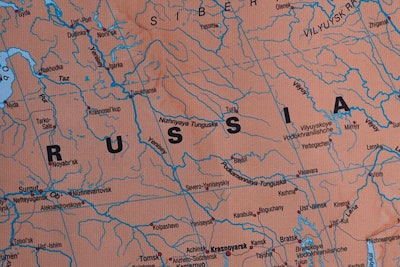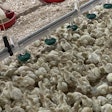
This year, poultry meat output by Russia is forecast to reach 5.38 million metric tons (mmt). By 2025, further increases are expected to 5.62mmt.
At a Moscow event at the end of April, these figures were presented by the national poultry union, Rosptitsesoyuz, reported Alekseev.
Poultry represents around 45% of total Russian meat production.
While domestic consumption amounted to 35.3kg per person last year, and is expected to reach 36kg in 2023, it is targets for Russian exports that have risen sharply.
In 2023, the association’s director general Galina Bobyleva said poultry meat exports had doubled over the past five years.
The largest importer of the Russian meat has been China, she said. Other key destination have been neighboring countries, Saudi Arabia, the United Arab Emirates (UAE), and Vietnam.
According to Bobyleva, total poultry export volume could reach 350,000mt in 2023. Compared with the previous year, this would represent an increase 3%.
In 2021, around 11% of exports were poultry carcasses, and 18% was deboned meat. In recent years, the proportion of deboned meat has been rising, while whole birds have declined.
For shell eggs, the association is forecasting exports up 13% year-on-year to 570 million in 2023. Kazakhstan and Kyrgyzstan are the leading destinations for these Russian products.
Total domestic production last year was just over 46.1 billion eggs, according to the same source.
Equipment manufacturers step back from Russia
Russia’s poultry meat and egg producers will be hoping that recent announcements from foreign equipment suppliers will not hinder the achievement of these targets.
In recent weeks, Rosptitsesoyuz has warned of increased challenges ahead, reported Russian business publication, Vedomosti.
A Dutch-based company is the latest to stop supplying machinery and spare parts to poultry meat companies in Russia. By this source, the firm was identified as Meyn. As well as ceasing supply of the industry in April, it was also reported to have halted servicing Russian poultry companies.
As much as 80% of the equipment on the nation’s poultry farms is supplied by foreign manufacturers, according to Bobyleva. As a result, producers have been encountering difficulties with maintaining and repairing imported machines. While some have turned to more expensive locally manufactured spare parts, others are sourcing their requirements from Saudi Arabia or China, reported Vedomosti earlier.
Meyn has not responded to a request for confirmation of the report, or a statement on the situation.
In March of last year, Iceland-based processing machinery manufacturer Marel announced it was pausing all new projects in Russia.
“Since the Russian government invaded Ukraine, Marel has and will continue to prioritize the safety and wellbeing of our employees,” according to a company statement released at the time. “Marel will maintain our dedicated teams in the Ukraine and Russia and our office in Russia, despite expected lower utilization in the near future. Marel will continue to monitor the invasion closely and take appropriate actions as it evolves.”
















